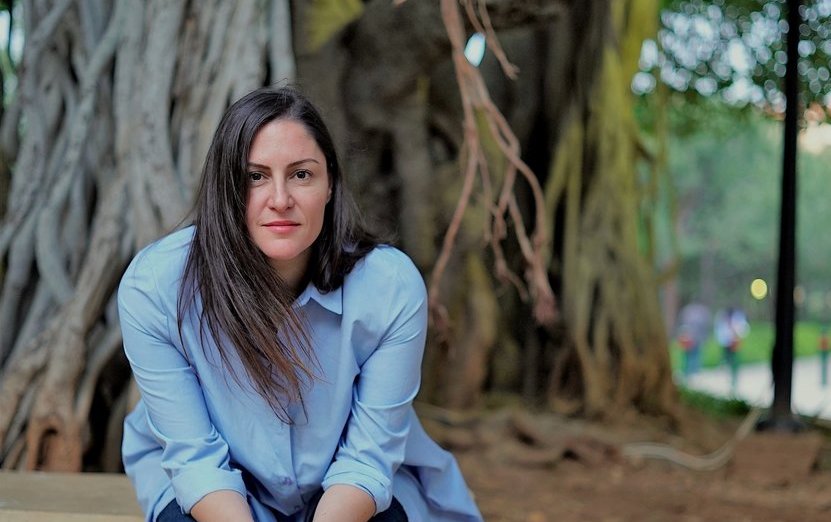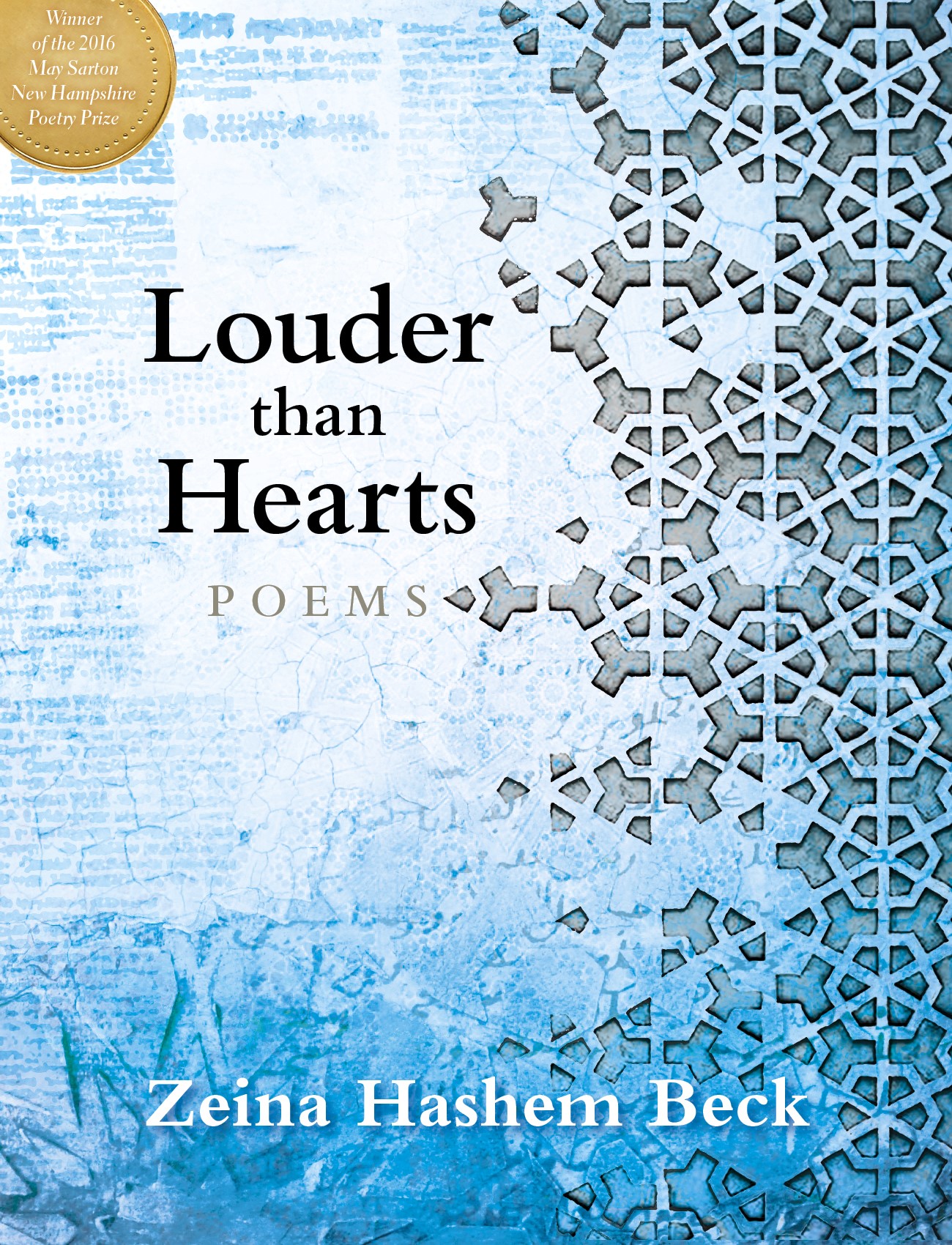Our broken languages

You dedicate Louder than Hearts ″to our broken languages & our broken cities″. Why the brokenness of languages?
Zeina Hashem Beck: I feel personally that all my languages are broken, because I speak and think in three languages: French, English and Arabic. Why do we speak French and English? Because of colonialism, of empire.
Before, I had this feeling of guilt towards Arabic. What I had to realise is that I can embrace the liminal space and find power in embracing it. The same term that could be a slur from someone else – ″broken″ – I embrace it. My Arabic isn′t perfect and I still search for definitions when I read in English. I continue to learn new words every day.
Why so many poems around experiencing the news? Particularly in the second section of Louder than Hearts, you have ″Terror/Mathematics″, which centres on the beheading of 21 Christian Egyptians in Libya, followed by ″Inside Out″ for Gaza of July 2014 and after that ″Ghazal: This Hijra″, dedicated to Mosul and Sinjar.
Hashem Beck: We exist in this world and we listen to the news. I don′t listen to it every day, because it depresses me, but I remember, when I was a little girl, whenever we were in my father′s car, he would put on the news. And I hated the language of the news. It was so dull, so unpoetic. My father also read the newspaper and a big part of my childhood was the news on TV.

The news was so central because of Lebanon′s (1975-1990) civil war?
Hashem Beck: I think people in Arab countries listen to the news all the time. As a poet, I also feel that I have a responsibility to witness and a responsibility to react to whatever is happening in the news. Then you take the language of the news and you subvert it. You have to be careful with that.
Be careful to…?
Hashem Beck: Careful not to use other people′s suffering for a poem. I identify with the suffering – I have lived through war. Even so, you′ve got to be careful.
Unless I′m really feeling shaken, I won′t write the poem. I would never think ″I have to write a poem about Palestine.″
Unless it′s really shaking you to the core, don′t do it. Don′t do it just to write about Syria.
What did you read as a child, that was formative for you? Did you read poetry?
Hashem Beck: I didn′t really read a lot as a child. We didn′t have lots of books around – it was the civil war.
There were books, but not for my age, so the stories my mother and aunts told were my first literature. And the songs, too. My parents always sang. The sound of the street outside our home was my early literature as well.
But I was always attracted to the language of poetry. As a young child, I didn′t read outside what the school required. When I was nine or ten, the literature teacher told me: ″Go pick a poem and memorise it″. I skimmed for short poems, the way kids do and found Victor Hugo′s ″Demain, dès l′aube″.
I remember how I thought, What′s this that I′m feeling? I remember going into class and performing it. That was an important moment.
Not just reading it, but performing it.
Hashem Beck: Yes. I think my mother is a performer and she speaks in stories a lot. My mother used to tell me all the time, ″You′re a writer.″
Why, do you suppose?
Hashem Beck: Even ads on TV – I memorised and performed them. I made up stories. I wrote definitions for words that were not the dictionary definitions, they were my definitions. I think she saw all of that.
Did moving to Dubai change you as a poet?
Hashem Beck: I believe what Dubai gave me, perhaps, is a certain space and peace that you do not have in Beirut. My entire first book is about Beirut and I love the city. But Beirut with two toddlers, with Beirut′s chaos, with a family nearby….
I think what Dubai gave me is an organised life. The children go to school and I sit down. I don′t have to talk to my mother or my mother-in-law; I don′t have to visit anyone. I just write. It gave me the solitude that I needed. I don′t think I would have written my first book on Beirut had I not been away from Beirut.
How do you think your poetry would have been different if, instead of moving to Dubai, you had moved to Canada?
Hashem Beck: I feel so ostracised when I′m not in the Arab world, when I′m not hearing Arab sounds. But it might be good for me. What if I′d moved to the U.S.? I would have connected with the zillion writers I admire. I would have more connections.
Still, I have never felt marginalised in Dubai. I never felt, here, that I′m a Muslim writer – I′m just me. Religion is a big part of my life and I write about it, but I don′t have to prove myself here, because I am the norm. Whereas Muslim writers living in the U.S. face this every day.
Interview conducted by Marcia Lynx Qualey
© Qantara.de 2017
